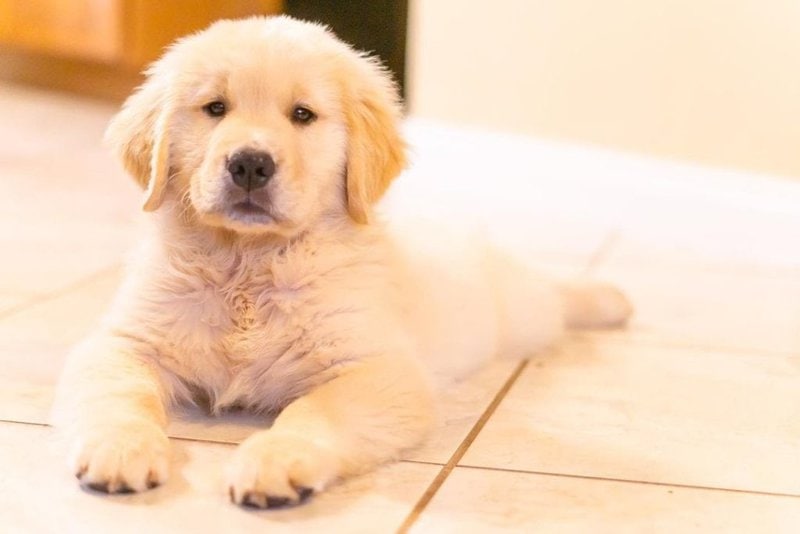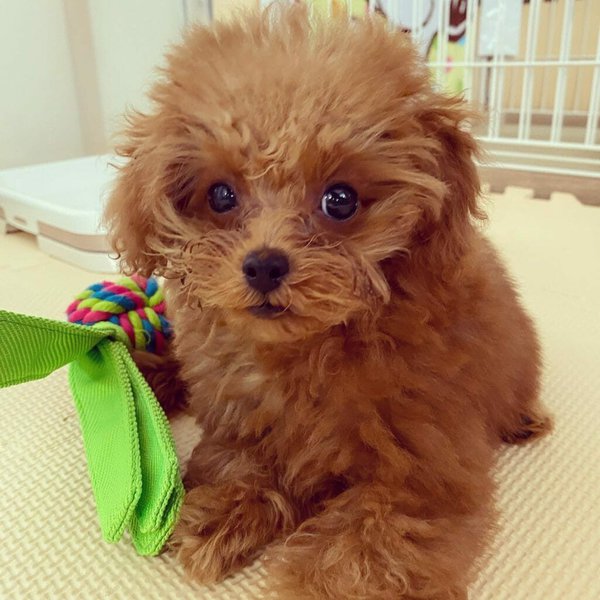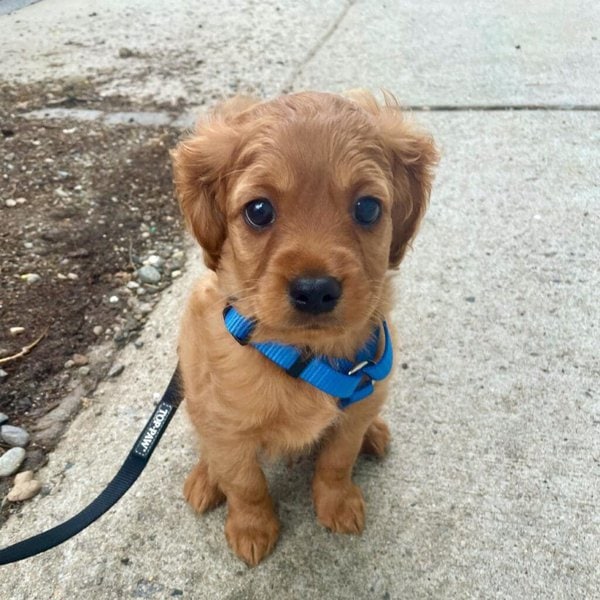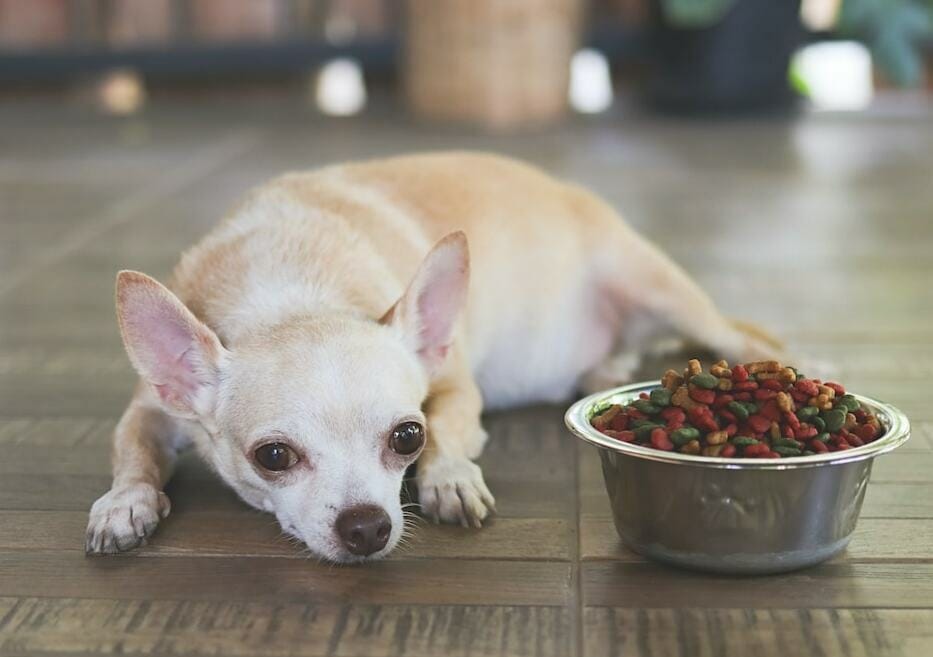Puppies are generally crazy about food, and will continue eating as long as kibble is made available. And this is why a puppy refusing to eat is a major source of concern for dog owners.
Now, why do puppies refuse to eat? Common reasons contributing to a loss of appetite among puppies include stress, illness and diseases, and the use of certain medications. Additionally, puppies going through the teething phase or those that have been subjected to a sudden change in diet also tend to reject food.
Understanding why your puppy is not eating is crucial to restoring your pooch’s appetite, and there are several things you can do to get your pooch eating again. However, before we go further, and to further assist you in restoring your puppy’s appetite, let’s take an in-depth look at the possible reasons your puppy may not be eating in the first instance.
Why Is My Puppy Not Eating?
Common reasons why a puppy may not be eating include stress, an underlying illness or medical condition, teething, gastrointestinal upset, poor feeding habits or medication.
Stress
Puppies are quite sensitive, and a young pooch may become disinterested in food if it is exposed to stressful situations.
Moving into a new neighborhood, the arrival of a new baby or pet into the household and long periods of separation from the owner are examples of situations that can trigger stress, and a subsequent loss of appetite in a puppy.
Additionally, if you’re bringing a new puppy into your home for the first time, you can expect the pooch to feel anxious about being in unfamiliar surroundings and being separated from its mother. And the outcome of this is a refusal to eat.
Underlying Illness
A loss of appetite is one of the most common and early signs that a puppy is suffering from any of the numerous medical conditions and canine diseases.
The presence of intestinal worms in the puppy’s stomach, and either of the various canine viral, bacterial and fungal infections have been linked to a loss of appetite in dogs and may be responsible for your puppy’s failure to eat. Similarly, puppies suffering from a dental or oral infection will stop eating completely.
Gastrointestinal Upset
Puppies have a habit of picking up items they shouldn’t eat, and in this process of scavenging for food, your pooch may pick up a foreign or toxic object that will trigger a gastrointestinal upset and cause a loss of appetite.
Similarly, some dog owners have developed a habit of inappropriately feeding their puppies with snacks and treats that leads to the pooch’s stomach becoming upset. And the outcome of this is the puppy’s inability to eat.
Teething
Teething typically leads to a puppy’s mouth becoming sore, and any attempt to eat during this period will be extremely painful for the young fido. Consequently, it is a normal occurrence for puppies to not want to eat when teething, all in a bid to avoid this pain.
Poor Feeding Habits
Sometimes, the cause of a puppy’s refusal to eat may be because the pooch has become a picky eater and has developed a preference for certain foods. And you can also expect your puppy to reject spoilt or bad food.
Additionally, if you implement a sudden diet change, your puppy may not like the new choice of food, and subsequently refuse to eat.
Medication
Certain medication, when given to puppies, typically causes the pooch to lose interest in food for a while. And common culprits include chemotherapy, antibiotics and some non-steroidal, anti-inflammatory drugs.
Additionally, if your puppy has recently gotten vaccinated, then you can expect one of the side effects to be a temporary loss of appetite.

When Should I Worry About My Dog Not Eating?
You should immediately contact a vet if your puppy has failed to eat consecutive meals and is exhibiting additional symptoms such as diarrhea, vomiting, extreme lethargy and high body temperatures, among others.
Newborn puppies can go without food for, at most, two hours, while older puppies aged three weeks and above will typically need to eat between every 5 to 6 hours.
And while it is true that some dogs will occasionally skip their meals, you should be worried if your puppy goes hours without eating and you then notice any of the symptoms listed below.
Symptoms To Worry About
Along with a lack of desire or an inability to eat, some of the other symptoms you should be on the lookout for, and which should prompt an immediate visit to the vet include:
- Diarrhea
- Lethargy
- Prolonged vomiting
- An unusual increase in the amount of water the puppy drinks or a complete refusal to drink water
- Reddening of the puppy’s gums, significant amounts of tartar or a foul smell from the pooch’s mouth
- Poor stool quality
- Abnormally high body temperatures (typically, anything above 102 ºF)
Puppies are quite fragile and are at a sensitive period of their canine lives; Hence, contacting your vet as soon as you notice any of the symptoms listed above may be crucial in preventing further degeneration of your pooch’s health, and prolonging your furry friend’s life.

What Do I Do If My Puppy Won’t Eat?
Once you notice that your puppy won’t eat, you should observe the pooch for additional signs of diseases, and if you notice any, book an appointment with your vet.
You can also try protecting your puppy from stress-inducing conditions, changing the pooch’s diet, warming and mixing up food, and incorporating supplements to promote a healthy appetite in your puppy.
Rule Out Any Medical Issues
The first thing to do when you notice that your puppy won’t eat is to consult with your vet, and maybe, book an appointment for a comprehensive medical diagnosis to check for the presence of diseases and infections.
While a loss of appetite doesn’t necessarily indicate the presence of a serious disease, prompt medical attention is needed to maintain the quality of your puppy’s life.
If, eventually, the cause of your puppy’s loss of appetite is linked to one ailment or another, your vet will prescribe the appropriate treatment methods, and restore the young fido’s appetite. In most cases, your vet will recommend a special prescription diet to feed your pooch while the ailment in question is being treated.
However, if your puppy is found to be healthy, you can try any of the methods listed below to get your pooch eating again:
Eliminating Stress
We’ve mentioned earlier how stress may be responsible for your puppy’s loss of appetite. And by identifying, and subsequently eliminating stress factors that are responsible for your pooch’s discomfort, you can get the pup eating again.
Some puppies are disturbed by their environment when eating; Hence, it can help to feed your puppy in a quiet place, away from noise and distraction, to create a sense of security.
Change The Puppy’s Diet And Feeding Habits
If your puppy’s refusal to eat coincides with a recent sudden switch in the food you’re giving to the pooch, then it will be in your dog’s best interest to switch back to the former food, while gradually introducing the new diet to the pooch.
Additionally, if your puppy won’t eat regular dog food, and instead, focuses on receiving scraps and treats from you, then it will be best if you stop indulging the pooch, and be strict about feeding high-quality dog food only.
Warm The Food
Sometimes, puppies reject their meals because the food is too cold. And by slightly warming cold kibble or wet food before feeding it to the puppy, you can restore the pooch’s appetite.
Also, warming helps restore the food’s aroma, and this further increases a puppy’s desire to eat.
Mixing Up Your Puppy’s Food
If you’re solely feeding your puppy with dry kibble, you can try adding in a bit of canned dog food or unsalted chicken broth to spike the pooch’s appetite.
NOTE! You should avoid feeding your puppy with broth that contains onions, chives or garlic, as these can be quite toxic to the pooch.
You can also spike your regular puppy food with plain yogurt or cottage cheese in a bid to tempt the young fido to eat. And mixing dry cat food, if you have any, in a pup’s food, has been shown to boost appetite in dogs.
Add Supplements To The Food
Certain high-quality puppy food supplements such as the TOMLYN Nutri-Cal High Calorie-Nutritional Gel have properties that restore a puppy’s appetite and eliminate food pickiness among dogs, and you can try mixing in a bit of this supplement into your puppy’s food, if it hasn’t been eating.
And in addition to restoring your puppy’s appetite, the TOMLYN Nutri-Cal Gel contains essential fatty acids that promote healthy skin and joint development, as well as extra calories for puppies that have been refusing food.
Make Feeding Interesting For The Puppy
By purchasing, and filling interactive toys with food, you can arouse your puppy’s interest in food, and subsequently get the pooch to start eating more. Offering to hand-feed your puppy may also convince the young fido to eat.
Additionally, you can try changing your puppy’s feeding bowl to draw the pooch’s attention, and perk up its interest in eating.
Take Your Puppy Out For Walks
By taking your puppy out for short walks before each feeding period, you can decrease the pooch’s energy levels, and increase its need to gain more calories from food, thereby promoting a desire to eat.






